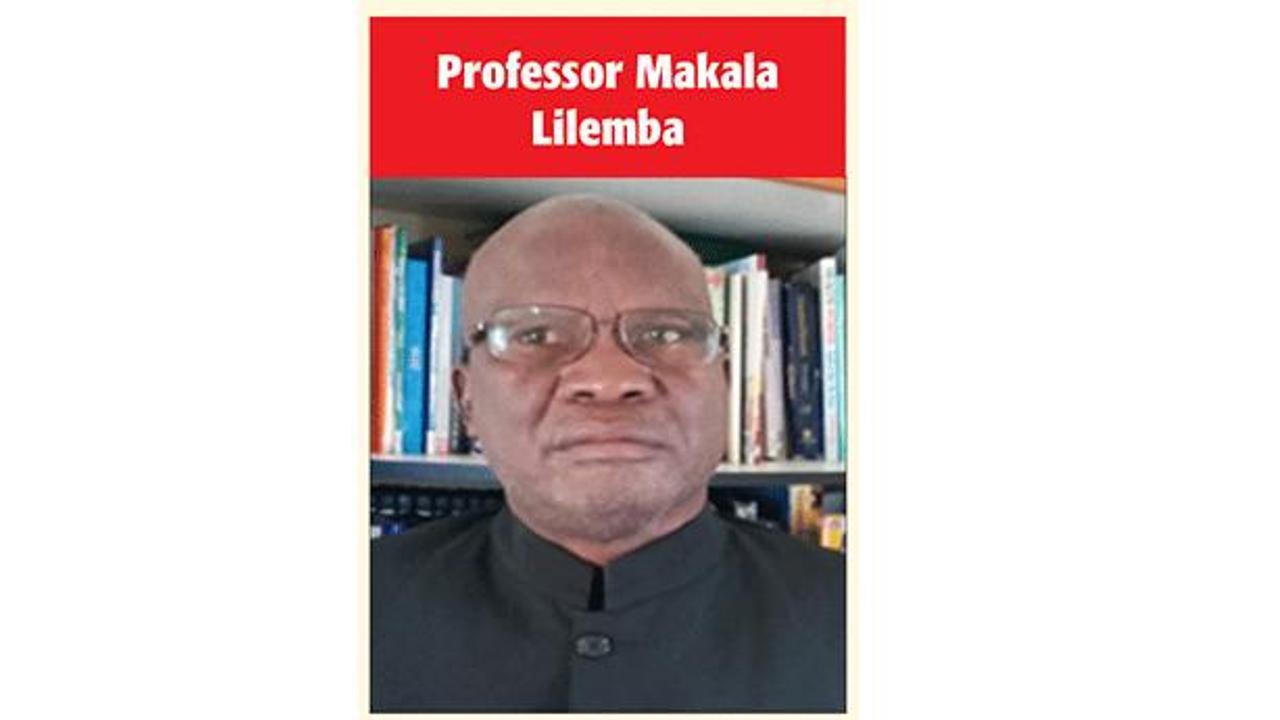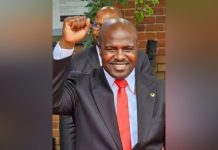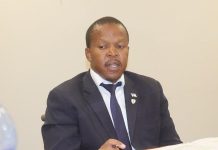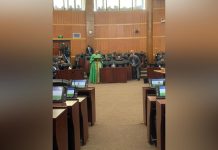Africa-Press – Lesotho. In his documentary, ‘The Africans: A Triple Heritage, Programme 6,’ Ali Mazrui, in 1986, narrates the inferiority complex situation in which Lyndon Johnson and Daniel Arap Moi found themselves after the deaths of the charismatic leaderships of John F Kennedy of the United States of America and Jomo Kenyatta of the Republic of Kenya respectively.
It was really challenging for the latter two leaders to fit in those political giant boots of their predecessors. Back home, the situation was little bit different, because Hifikepunye Pohamba, despite being labelled as being remote-controlled by the first president, Founding President Sam Nujoma, Pohamba made independent decisions.
As per rating, he should be regarded as very reconciliatory and humble head of state indeed. According to Mazrui, Kenyatta became the personification of the state and loomed larger than Kenya altogether and mere speculation that he would die one day was a crime in itself.
This tendency of demigodifying leaders has been like that in many parts of Africa immediately after independence. This led to the situation in which some countries plunged into conflicts and wars upon the demise of the founding president.
The reason was very simple, because these leaders were taken as having saved the toiling and oppressed masses from the claws of colonialism and refused to die in the minds of the people.
During the colonial period, the common enemy was the white person and people believed that things would be better after his removal. But that did not turn up to the expectations of the oppressed people.
In fact, they woke up to a terrible nightmare after years into independence. This is testified by Onyeani, in 2000, a Nigeria based in the United States of America, after fleeing the Biafra War in 1967.
In his book, ‘Capitalist Nigger’ Onyeani maintains that the promise of independence has not been fulfilled for most of the years of independence. According to him, Africa has become more desolate, starving, disease-ridden, and endured various wars in which millions have perished.
There are more dictators in Africa today than the rest of the world and the leaders want to stay in power until they go to the grave. Onyeani continues to state that through buffoonery, mismanagement and downright stealing of the wealth of the masses, African leaders have impoverished the continent and have turned it into a beggar continent.
Africa begs everything and more dependent on the colonial masters and owe them more money than we and our generations to come can repay. The Silozi idiomatic expression has a rebuke on begging as it says that avoid begging for anything but try to find another source as water that has been begged for does not quench the thirst.
But this might be countered as in today’s world no nation in the world is self-sufficient. But it is the level and capacity of almost total dependency that Africa is portraying which is worrisome.
By winning independence more than thirty yeas ago, countries should have invested heavily in the education system which could have ushered in new skills and develop the countries.
These sentiments may sound too harsh, but the point is that the truth hurts. It is also true that Africa enriched the United States of America and countries of the West.
I recently ruffled feathers of fellow participants on Zambezi N42024 Campaign WhatsApp group when I alluded to the African delegation to Russia as beggars for fertiliser and grains and not for peace mission.
In this roughing, I was supported by the Muslim leader in the United States of America, Louis Farrakhan who equally aired similar sentiments in the past by castigating African leaders to stop this habit of begging and employ self-reliant strategies.
Let us view it from this perspective: if a child keeps on begging and let alone stealing from the neighbours, it is obvious that the parents will be blamed and held responsible for the illegal activities of their child.
Equally in many instances where African countries miss the direction, it is their leaders who stand accused. In the event that Africans lack a common enemy, the leaders became relaxed and started crucifying the same people they were fighting to redeem.
In the process it became difficult to identify leaders let alone grooming them as the first president from Independence will permanently stay on refusing to step down and the potential presidential candidates are either frustrated or made to disappear mysteriously.
Then the country comes under a situation of a leadership vacuum, as it becomes hard to solicit for a person with leadership attributes which are acceptable by the majority of the people.
When things do not work out as expected, Africa blames Britain and France for colonising the continent and hurl at them insults for being imperialistic and racist. Yes, the countries are known for having enhanced the chances of regime change in Africa.
But sometimes the African continent and leaders have themselves to blame for overstaying their terms of office and changing constitutions to enable them stay permanently in those positions.
The rhetoric about imperialism as being at work in Africa could be genuine but the leaders should equally look into their mirrors, instead of blaming the former colonisers after so many years of Independence.
In all their dealings leaders should be exemplary and the masses are highly likely to follow. But if leaders squander the resources of countries, of course they will have made it a precedence for everyone to help themselves to the illegal activities by taking what they think belongs to them.
For More News And Analysis About Lesotho Follow Africa-Press






